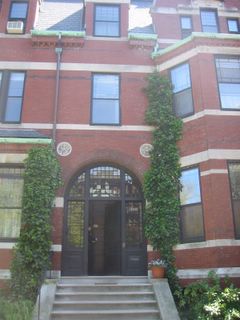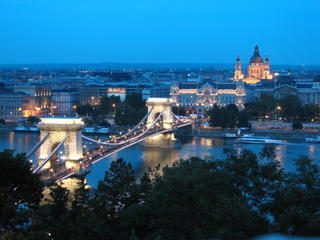It was rainy. I hate to drive. But Kozol was speaking in Wellesley. There is a train to Wellesley, but his talk was in the Unitarian Universalist sanctuary and, sadly, the train did not stop precisely in front of the church. For those of you who know me, you know my horror at hitting the highways, at night, in the rain. You know that I really, really wanted to see Kozol speak. So I went.
Kozol was tired, and not just because of the exhausting book tour. In fact, this talk was “at home” here in Massachusetts. So he was technically taking a break from the tour. He was tired too because of his elderly, frail parents. But more about them later.
He was tired, but he was delightful and outrageous. He believes that we should be outraged at outrageous things. He has focused his life, spent his life, working with and for kids. He has tried to make sense out of the American public school system. When it wasn’t possible to make sense out of the injustice and apartheid conditions he faced, he turned to outrage. He is right.
The speaking engagement was an intimate one for him. Usually he speaks to audiences of 800 or more. Our gathering in the packed sanctuary numbered about 200. I had left very early to give myself ample time on the highways and arrived near 7:00 for the 7:30 speech. I sat myself in the second row, just beneath the pulpit. Soon the chilly church began to warm up as the crowd, mostly women, gathered. He started promptly and when he asked if there were any teachers in the audience, a good half of us raised our hands. Teachers have been turning out in droves for his talks. Teachers want answers.
Kozol wore a light blue button down shirt, rolled up past his elbows, and a navy tie. His voice was soft, almost high-pitched and moved higher when he posed a rhetorical question and softened playfully when he recounted a story about a kid he had met. He smiled when he talked about the kids he knew and loved. When he came out from behind the blonde wood pulpit at the end of his talk, I saw that he wore navy sneakers with white piping. He was not nearly as tall as me, which must make him fit in very well with 4th graders.
Kozol graduated from Harvard and went to teach 4th grade because he believed in little kids. He still believes that bringing “joy, magic, mystery and mischief” to pint-sized people is the best thing you can do in life. He has spent his career working on their behalf, and now only visits classrooms. Seven-year-olds, he said, have only a theoretical connection to their chairs. When he asks questions they jump and wave, even thrust their little waving fingers in his eyes. He recalled one little girl who nearly blinded him and so, afraid she might die, he called on her to answer his question. She looked up at him with a sweet smile and asked, “What?” She just wanted to be recognized, he said.
During Kozol’s talk he discussed one of President Bush’s education catch phrases. Bush often talks about what he calls the “soft bigotry of low expectations.” Bush accuses teachers and schools, and the public at large, of this new, more insidious kind of bigotry. As if race had nothing to do with it.
Bush accuses schools and teachers of failing our kids because of low expectations. It seems that Bush doesn’t get teachers. Teachers, in America, do not get into the profession for financial gain or even to earn social status. They teach because they are idealists, at least to start out. The best ones remain idealists despite the odds. Idealists, by definition, have high expectations.
So if teachers and schools don’t suffer from the soft bigotry of low expectations, I wonder, then who does have this disease?
“Be not offended, but feel a little threatened,” Kozol intoned from the pulpit. “It is my job to make people feel uncomfortable.”
“Outrage is not in fashion.” Kozol was right on. The American public, even the world today, is too tired to get mad. It is far easier to ignore the problems that do not directly affect us. “We should be outraged at outrageous things,” he said.
And the most outrageous thing in the America right now: Apartheid in our democratic schools. Segregation across America is worse now than at the time of Martin Luther King’s assassination. If you want to see a segregated school, just look for one that is named after a great Civil Rights leader. The student population will be nearly 100% dark-skinned, the teachers will be the most inexperienced and low paid in the district, it will have the largest class sizes, the building will be in ruins and the hallways will reek of depression.
Some say that Kozol’s use of the word “apartheid” is too strong. Apartheid in South Africa was a legal division of the races. Kozol says that in the eyes of children, it doesn’t matter. It is apartheid. It is not a legal mandate, but it is economically and socially enforced.
26 out of 11,000 students in the Bronx are white. (Try saying that out loud.)
“Children are equal in the eyes of the Lord, but not in the eyes of the United States government. . . . they come into the public schools with a price tag stamped on their foreheads,” Kozol claimed. For example, an inner city kid in New York is worth about $8,000 per year (this is what the government spends per pupil), while a kid in the suburbs is worth easily $14,000 and up to $22,000 in the wealthiest areas.
These are separate schools, and unequal.
How can we solve this problem? Kozol related stories of getting stuck at dinner parties with his old Harvard grads. They like him and admire his work for social justice. They might say, "Your last book made me cry." But by the time dessert and coffee are served, they lean back in their chairs and ask, “Can these problems be solved by
throwing money at the situation?” This question comes from parents who spend thousands upon thousands to send their own children to private elementary schools.
“Yes!” Kozol says, “Throw it, throw it from a helicopter!”
How can the rich claim that money can’t solve the problem when they throw their own money at their kid’s private education? Even the use of the verb, throw, instead of allocate or even spend, betrays their “soft bigotry.”
Kozol believes in kids. He believes in Pre-K education for all, especially the inner city kids who need it the most so that thy have a hope of passing the standardized tests mandated by the government. He believes in real literature, not merely phonics. He believes in teaching lessons, not merely Standard 267b. He believes in accountability, not merely for kids, but for the government first.
The lecture ended on a personal note. Kozol's father is 99 years-old. He was a leading neurologist in Boston and has been diagnosed by one of his former students with Alzheimer’s. His mother is 101 years-old and still bossy! When she saw the tie he planned to wear on the tour, a navy thing with coffee stains, she said, “Do me a favor. Go to Lord & Taylor’s. Buy yourself a tie and charge it to me.” (He was wearing the tie, by the way.)
Kozol said that his mom is still his best friend. When he was fired for teaching Langston Hughes to his 4th graders, his mom and dad came to the school to march with the parents who protested his departure. He was a Rhodes Scholar fired from teaching the 4th grade due to “curriculum deviation.” His mother marched for him all those years ago, and he can’t bear the thought of losing her now. He ended his speech by concluding, “Life goes so fast, use it well.”
Use it well.
I teach in an affluent, white suburban school. I didn’t mean to. Now I have to consider, carefully, how I use my life, my profession. I want to use it well.
The crowd moved into a meeting room for the signing of books, and coffee and cookies. I didn’t know a soul. I had checked out his book from the Boston Public Library,
The Shame of the Nation, and read it before the talk. I hadn’t intended to have him sign anything. But I gave in.
I bought a copy and then tried out little speeches in my head to say to him while he signed it. I had lots of grand, succinct, eloquent things planned out. In the end, I mumbled. He thought I said Philadelphia instead of South Bend. I mumbled some more, put my book in my bag and headed out into the rain. I started the drive back clutching my mapquest directions with my tank on E.
Someday I’ll tell him thank you, properly.



